A conversation between Karim Sariahmed and Ellen Schwartz, with an introduction by Karim
I first met Ellen Schwartz of the Vermont Workers’ Center through the Healthcare is a Human Right Collaborative, which brought Put People First! PA and the Vermont Workers’ Center together to share lessons from class struggles on the front of healthcare. At the same time, I was in medical school and writing about our healthcare system and its pedagogy. Ellen would often respond to my reflections with her related experiences as a teacher.
Since then, I moved to New York City to complete my medical residency, where I also joined the New York State Poor People’s Campaign. New York City’s hospitals have a well-deserved reputation for being hyper-exploitative of workers. Some medical students intentionally leave the city because the working conditions interfere with one of the most important stages of education for physicians. Three of my fellow internal medicine trainees, caught in the especially precarious position of relying on their hospital for work visas, committed suicide this year.
Of the many demoralizing and dehumanizing aspects of medical training, the interference of health profiteering with medical education was most alarming to me. The tradition of the University of the Poor is to uplift and protect the right of working-class people to think and study on terms not dictated by our university system, which largely serves the rich and obscures the things that working-class people have in common. Residency training is one extreme example; we participate in an intense competition for the “opportunity” to work 70 or more hours per week.
I wanted to speak with Ellen about how our tradition and philosophy of poverty scholarship — “struggle as a school” — might help working-class people avoid the kinds of anti-intellectualism which plague us in school, in the university, in healthcare, and in our movement in general.
The Dangers of Anti-Intellectualism
Most working-class people have experiences which condition us to believe we’re not thinkers, intellectuals, or people with good ideas or good questions. Often our defining interactions with expertise and experts are marked by shame we experience in school and in society. We reproduce a culture of anti-intellectualism when we rush to pragmatic solutions that prioritize “winnable outcomes” to the detriment of study focused on unpacking the root causes of the problems facing our class and the nature of the class war we are engaged in. This includes the study of history, our own movement, and the institutions we inhabit. It is to the advantage of the ruling class if we believe we’re not capable of thinking and studying, and most working-class people don’t get a real chance to think critically about or study capitalism itself. The extreme consequences of the “red scares” of the early to mid 20th century included the purging of the university system of most programs of study that take seriously the class nature of society under capitalism and offer space for people to study capitalism analytically; how it works, who it benefits, who it hurts, etc (and to study alternatives in a similarly analytic way).The lack of opportunity to study capitalism adds an additional barrier to understanding the situation of our class.
As organizers, we have to take study seriously and hold ourselves accountable intellectually. We may hear messages from the media or from each other that reading and intellectualism are “bougie”, when actually they are necessary to our survival. We need to claim our right to study. This includes both textual study of the history of our struggles and ongoing reflections in our experiences in organizing. This must go beyond some forms of “popular education” which make us believe that merely listening to the experiences of people around us will form an adequate foundation for understanding our situation. While popular education has a place in our work, it is critical that people sharing their experiences learn to connect those experiences to the larger structures and powers that affect our lives. Also crucial to working-class pedagogy is the need to define our own questions. Much non-profit and think-tank scholarship funded by ruling-class philanthropy asks questions about the proper “management” of poor people. They take for granted the presence of poverty even in a society of abundance. Working-class organizations must raise a different question: “Why are we poor?” We cannot end poverty if we do not get together to pursue these kinds of questions.
Anti-intellectualism under capitalism can shape any of the disciplines that might serve us in raising questions of consequence to us, and any of these disciplines can be used to exploit us if we are unable to engage them. I mentioned bourgeois economics as an example, but history, philosophy, science, and applied fields such as law, medicine, or engineering can serve a similar purpose. It doesn’t mean that any of these fields are intrinsically tainted. Revolutionary victories for working-class people throughout history have celebrated the human right to education. We see this in revolutionary literacy campaigns in Cuba, China, Burkina Faso, Russia and during American Reconstruction, and in alternative school models in more recent US history. We must cultivate our culture of study at every level of working-class organization and celebrate its incorporation into all aspects of our struggle.
The Ruling Class and Anti-Intellectualism
Ellen and I focused on science and healthcare as fields in which ruling-class interests and questions undermine the opportunity for working-class intellectualism. This happens in several ways:
a. Surface-level metrics form the foundation for sciences focused on improving production efficiency and patient turnover, reducing costs, and mitigating legal liability for centers of capital in our healthcare system.
b. Systems for rationing care are intentionally complex. Engagement with them requires specialized technocratic knowledge. The accompanying messages are that the details are only for “experts” to know, and that working-class people aren’t sufficiently smart or qualified to engage the systems that deny them care.
c. Pedagogy about the class-based system we live in is absent from most formal education. Instead, our formal bourgeois education system, which is the only opportunity for most working-class people to study science, is deliberately confusing about class. Moreover, the conflating of the need for a scientific approach to solving common problems with the science-for-profit system cultivates a well-deserved mistrust of science by the working class and especially communities of color who have been experimented on throughout the development of Western scientific institutions. Conspiracy theories proliferate in the absence of any practice of science which integrates working-class concerns at a foundational level.
Poverty scholarship, or “struggle as a school,” is both a philosophy and an organizing practice whose questions are rooted in the struggles of our class. Ellen and I think this practice can build the working-class intellectualism we need to counter the anti-intellectualism which is a plague on our society and our organizing. Focusing on science and healthcare, we discussed how the themes outlined above arise in our organizational work and in our personal experiences.
Metrics of the Ruling Class
Karim: Within my world of healthcare, it’s not at all easy to do research. When I’ve done it, it’s been on my own time. A question I’ve focused on is how poor people get access to expensive medications. This originally started as a piece I wrote for my comrades in medical school. I was trying to think about how the forward march of science could serve the poor, since I think most of us in the University of the Poor would argue that it currently doesn’t. My hypothesis is that patterns of investment in drug development are largely disconnected from the most important problems threatening our ability to prevent and treat disease. There are few opportunities for people to pursue this kind of question; it’s not the kind that is funded as “science.” Researchers are more likely to be paid to ask more “practical” questions like, “Do these particular drugs work?” We ask that in clinical trials. Less often, we ask “Who gets these drugs?” That’s the provenance of health disparities literature. This area of study, while only occasionally examining root causes, is itself marginalized in the funded research landscape. Tax money funds about half of all scientific research in the U.S., but the share of research funded and thus controlled by private industry has outpaced the funding of public research.
Resident physicians like me are supposed to read this kind of research to help treat patients, but there isn’t much protected time to do this. We muddle through and do our best to keep our patients safe, but our health system’s focus is on particular watered-down metrics of “productivity,” and our workplace is designed accordingly. Conversations in the literature about patient safety do not focus on clinical reasoning, the thing that doctors take many years to learn and consider our most important responsibility. The metrics most visible within our health system are those which are easiest to measure.
One example of this is infections associated with catheters in hospitalized patients. While these are important and avoidable, they’re particularly salient because certain low-level administrators are paid to pester doctors and nurses to make sure catheters are managed in a way that avoids getting “dinged” on quality metrics. They will interrupt other aspects of patient care to do this because these particular measurements are tied to the hospital’s income, not because they are more important than other metrics we could use. A pragmatist form of production management called “quality improvement” arises from the analysis of this kind of data and is passed off as “scholarship” in academic medicine. Health systems pay workers to conduct this constrained form of “research” for the same reason that they pay administrators to collect the data. Many health workers then interact with this form of “research” exclusively – we are held accountable for the metrics. Walk onto a hospital ward and you’ll likely find these metrics on display, extolling the virtuousness of nurses who are responsible for, say, the number of consecutive days without a negative metric.
It isn’t that these metrics don’t tell us anything important, but there are no metrics for helping a patient understand their illness, formulating a high quality assessment that communicates your clinical reasoning, diagnosing a rare disease, updating families about a patient’s condition, or supporting people faced with mortality. As a result, we spend less and less time doing these things and devote more time to “quality improvement.”
Ellen: Just like doctoring has increasingly been reduced to these watered down “healthcare encounters”, learning in many public schools has been reduced to “skills and knowledge”; outcomes measurable by standardized tests which end up defining “quality improvement” in schools.
It’s important to understand the history of these tests. Carl Brigham, a psychologist and eugenicist, helped develop the first standardized tests at a time when the U.S. was absorbing millions of immigrants from Eastern and Southern Europe. In A Study of American Intelligence (1923), Brigham argued that the intermingling of these new immigrants in the American gene pool would dilute the superior “Nordic race group,” and that this “racial” mixing would cause deterioration of the public schools.
In the 20th and 21st centuries, these tests have been used in the service of privatizing public education by “proving” that public schools are failing and that some private alternative (vouchers, charters, etc.) is needed. Perversely, the targets of these privatization efforts are most likely to be schools serving poor children, especially children of color. The tests, with their ingrained biases, confirm what we already know about the challenges these under-resourced schools and communities face, but they are used to pull resources out of public education, rather than to provide greater support.
Similar to Karim’s point about the hospital ward, tests define which outcomes matter in most public schools, and in the rush to raise test scores (so your school won’t be defunded or closed altogether in favor of a charter school) teachers are pushed to teach to the test. What is tested comes to define what is taught. Because the elementary grade tests focus heavily on reading and math, subjects like science, social studies, the arts, and physical education are sidelined, especially for the poorest students. Science and social studies have such potential to engage students in posing questions rooted in their own lives and to equip them to use reading, writing, and math in the context of actual inquiry, rather than as discrete subjects to be mastered and tested. Literature and the arts engage our imaginations, but there is no way to test for that, so when poetry appears on the third grade standardized test, the questions are all about vocabulary; knowing what a stanza is, for example. This reductive view of education is deadening for students and for teachers.
Navigating Complexity
Karim: When we get into the weeds, we can see how the metrics favored in ruling-class institutions aren’t meant to serve us. Members of our organizations could even get pulled into a project of fixing them, through “community advisory boards” and other kinds of tokenization. Of course, that isn’t our project when we talk about healthcare as a human right. We definitely need some knowledge of these systems to maneuver in and around them. We need to decide which questions are of greatest concern to us and what types of complexity are worth dissecting. However, we also need to know when the complexity in a system is meant to mystify and distract.
Ellen, you’ve also been a leader in practices of poverty scholarship within struggles waged by the Vermont Workers’ Center around healthcare. Can you talk a bit about that?
Ellen: The technocratic aspect of the healthcare system that we’ve been most involved with at the Workers’ Center has been accountable care organizations (ACOs), which have been uses as a tactic of the UVM Health Network to create a private monopoly over healthcare in Vermont, in response to Act 48, our “single-payer healthcare system” win in 2011.This law was moving Vermont in the direction of a public system and the profiteers said, “Oh no, not that!” Ever since, they have been redoubling their efforts to create a private monopoly. They own several hospitals, including Vermont’s flagship UVM Medical Center, as well as medical practices, and they sell their own Medicare Advantage plan through an insurance company. So they are doing a lot to monopolize healthcare beyond the ACO. But their ACO, OneCare Vermont (OCV), has been front and center in part because Vermont contracts with them through an All-Payer Model Agreement, sending them millions of Medicaid and Medicare dollars annually. Medicaid is the only payer that covers their operating costs, IT costs and their “population health initiative,” none of which are fully transparent or accountable.
OneCare Vermont has been a campaign target for us because it is a tactic of UVM Health Network to consolidate control of our healthcare system and hence a roadblock to a universal public system. We spent several years trying to understand it, growing out of a Vermont Political Economy study that our political education team organized. I think of that as an example of us as lay people trying to wrap our minds around this complex institution. Our research was important so we could explain to our members and the public why OCV is a barrier to achieving a public system.
An important lesson about complexity is that while it’s valuable to have some members digging into things like ACOs, it’s equally important to zoom out and keep our eyes on the big picture. Now that OCV has received a fair share of public criticism, other privatizing tactics are being deployed. Rather than understanding in depth how each works, it’s more important to see them as variations on a theme. For example, they all involve medical practices and programs such as Medicaid becoming risk-bearing entities. It behooves us to understand what the risk-bearing model is and its roots in capitalism, so we can understand this model as a way that the capitalist class is seeking to profit in the domain of healthcare, both public and private.
We need to determine which questions are worth pursuing. OneCare VT is important to us because it’s a monopolizing tool, and the neoliberal response to a victory we had. We also understand it as one manifestation of a larger trend in healthcare: the move to risk-bearing entities. This may not be the most important thing for folks in other states to understand. For example, for Put People First! Pennsylvania it may be more about hospital closures (which we also have in our sights in Vermont).
Whatever the subject, what matters is to study it deeply enough so that when the moment comes, we can engage power holders effectively. Vermont legislators expect us to share our stories, but some have been surprised when we connect our stories to policy and explain why the current direction will not lead to universal healthcare. This circles back to what we were saying about popular education. The norm with grasstops organizations is often to let “the experts” pick a strategy and then ask “the community” to tell their stories in this tired dog and pony show.
Karim: I’ve had two experiences organizing around hospital closures, and in those contexts it’s been similarly important not to get sucked in to engaging the wrong kinds of complexity. If you are deeply invested in the maintenance of a hospital’s revenue model, you can produce all sorts of research about “quality” and “value” to justify closures, property acquisition, or disinvestment in vital services. Healthcare profiteers can use this kind of health services research to mystify us. When a hospital owner sees that their investment isn’t turning a profit, they ask “How can we afford to keep the hospital open?” They can publish studies about bed occupancy or “high-value care”, which revolve around the wrong question, or define value in an extremely narrow way.
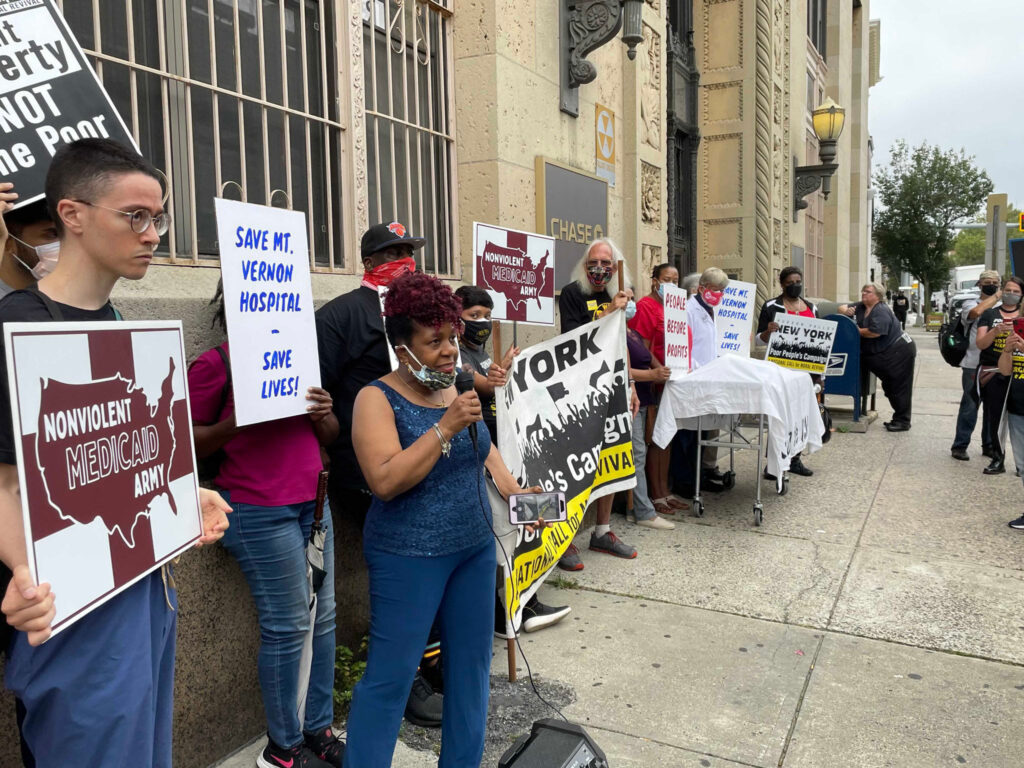
When working-class people think about the closure of a hospital or about disinvestment more generally, our questions are completely different. “How do we build a workforce of health workers who can meet all levels of need in our society, from cancer screening and prevention to the treatment of gunshot wounds?” This question is also very complex. It is the kind of question which deserves our attention and input, and requires a scientific approach. We can’t cede that to the kinds of “experts” that weigh our survival against a profit ledger. We also can’t pretend that we’re already prepared to answer it in a serious way. We need to develop our capacity for that. Science has been used to hurt and exploit us, but working-class pedagogy can’t afford to ignore or reject it.
Reclaiming Science Through Working-Class Pedagogy
Ellen: A lot of working-class people have a justified mistrust of science. It’s true that any discipline in the ruling-class university system can be infused with ideologies that help to further dispossess the working class. But science has a specifically negative connotation, largely because of the history of medical violence against the poor, especially against people of color and people living in colonized parts of the world.
Karim: Absolutely. I think conspiracy theories are a natural response to this. Recently, I did a house visit with a doctor who treats families living in single-room occupancies — basically slums run by the underfunded department of homeless services. She had a longstanding relationship with this family, who were living in the worst housing I’ve seen in my life. It was infested, with hardly any light or circulating air. When the doctor asked her patient if he wanted a COVID vaccine, he began to explain to her how the vaccine spreads the virus. There was no convincing him otherwise, and their exchange on the topic wasn’t really a conversation. Everything the doctor said was somehow part of the conspiracy, despite their great rapport. The family was undocumented and could not get any other form of care.
To me, the real conspiracy was that he was forced to live in a slum which was not at all fit for him or his elderly mother. That housing was a much greater threat to their health than any vaccine side effect. There was no opportunity for that conversation, but we’re building the capacity for that kind of conversation in our organizations — particularly through projects of survival. If we agree that some scientific literacy is necessary to maneuver around and undermine healthcare-for-profit, then the kind of pedagogy on class which most of us are denied in mainstream education can serve as a backdrop for reclaiming a working-class approach to science.
Ellen: When I think about science for working-class people, I think the starting point is the same for making all education more meaningful. We need to teach revolutionaries the same things we need to teach children: you can ask questions, and your real questions matter. The process you are trying to understand matters. In my teaching experience the questions I found incredibly important — questions about fundamental aspects of learning and teaching — were not taken seriously. The standardized metrics pointed in one direction and my job was to make my students fit into them. The same thing with people accessing healthcare: why is mRNA different from another kind of vaccine? Maybe that’s important for you to understand to feel safe getting a vaccine.
Some see the manufactured culture wars around the vaccine as a simple failure of “science communication,” but I think it’s deeper than that. It’s related to a thread of anti-intellectualism which runs through our experiences as working-class people. Making the struggle a school is how we can challenge that. Our questions matter and our intellectualism matters. Our task is to recover a working-class pedagogy from the ruling-class ideologies that undermine us in the academy, in the classroom, in healthcare, and in industry. That way we can create those opportunities for our questions to matter.
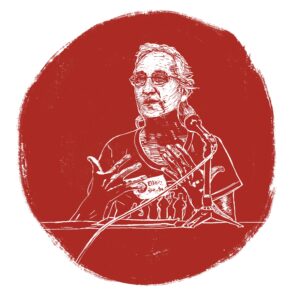
Ellen Schwartz is a member of the Vermont Workers’ Center, where she co-coordinates the Windham County Organizing Committee and the Campaign Team. She is a retired teacher, with a history of union activism in the now-defunct District 65, and unions in the printing trades and education. As a teacher, she was also active in organizing against high-stakes testing and the privatization of public education.
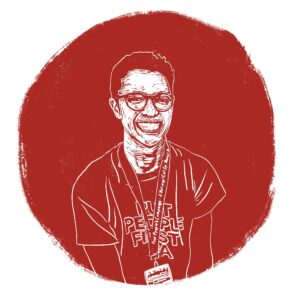
Karim Sariahmed is a member of Put People First! PA and the New York State Poor People’s Campaign. When living in Pennsylvania he was an active member of the PPF-PA Campaign Team. In New York he is part of the leadership of the Hudson Valley Regional Committee of the NYS PPC, where he works to support base-building, leadership development, and political education in the region.
Top photo: Vermont Workers’ Center 2019 March for Medicaid in Barre, VT
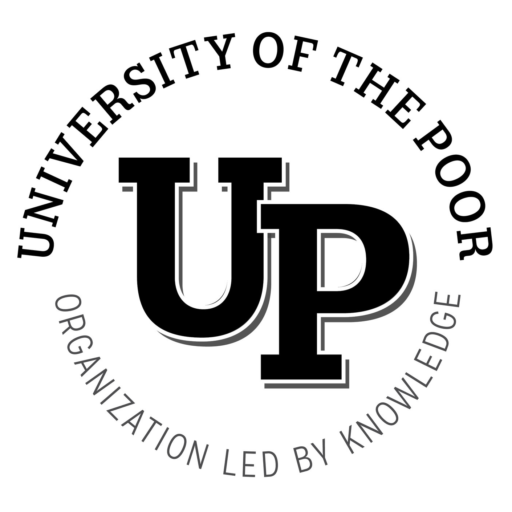
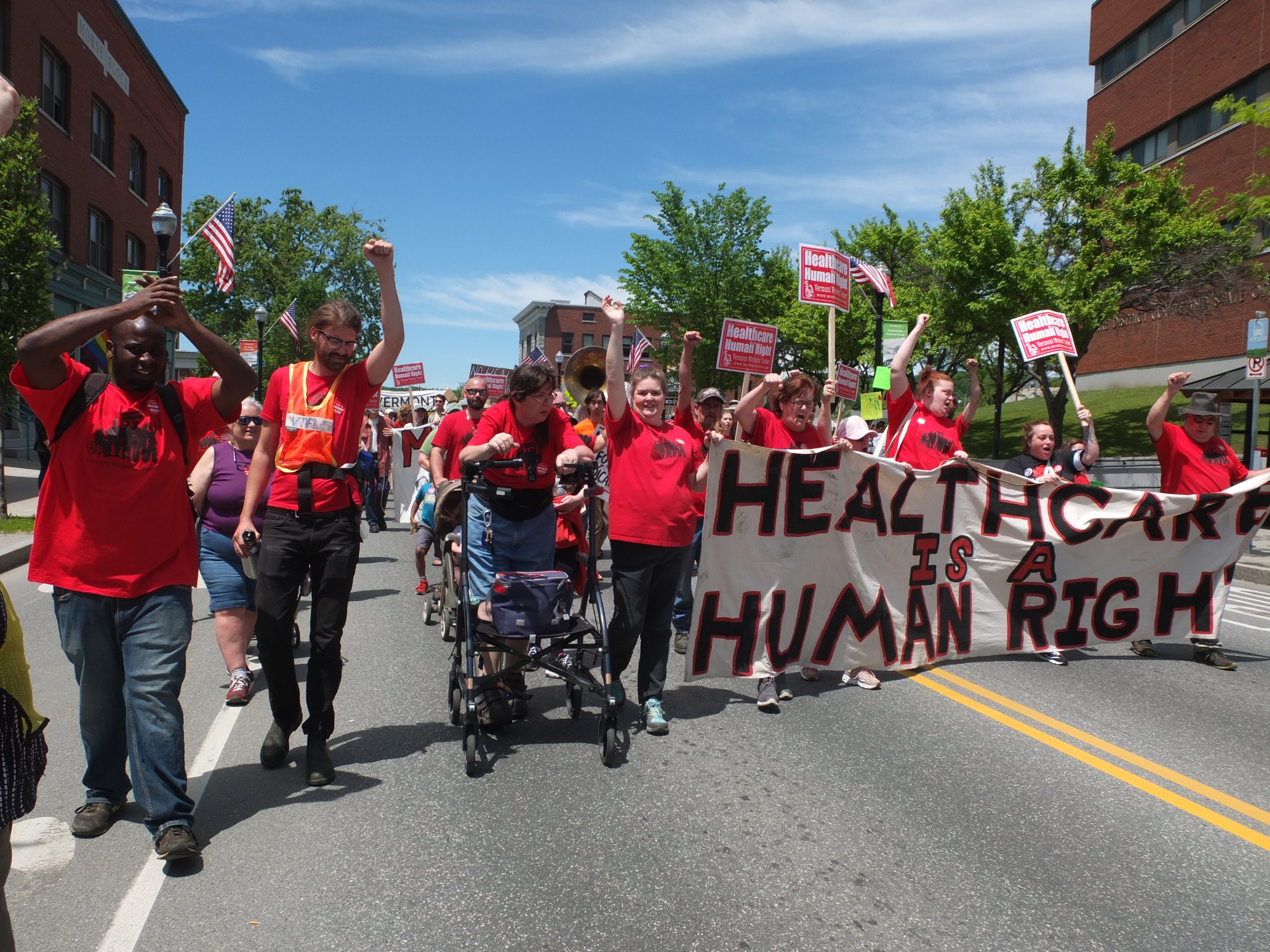
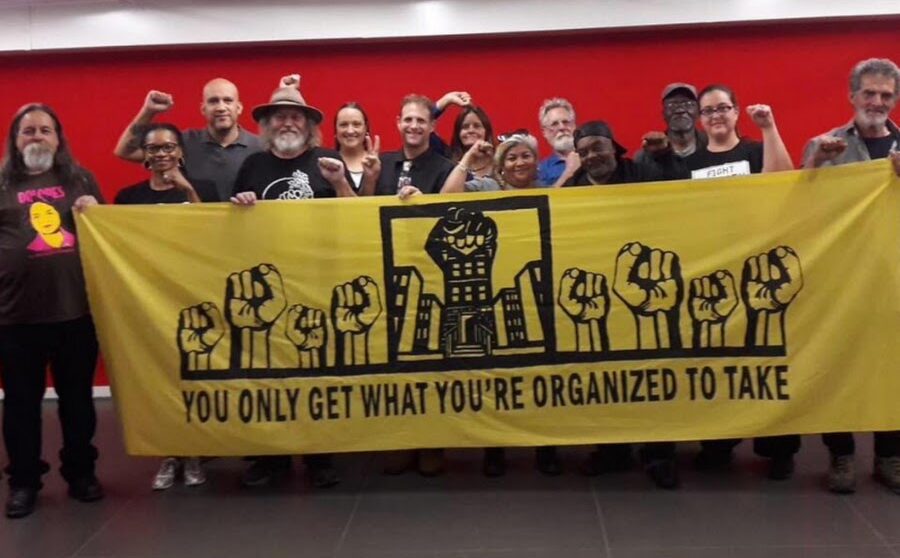
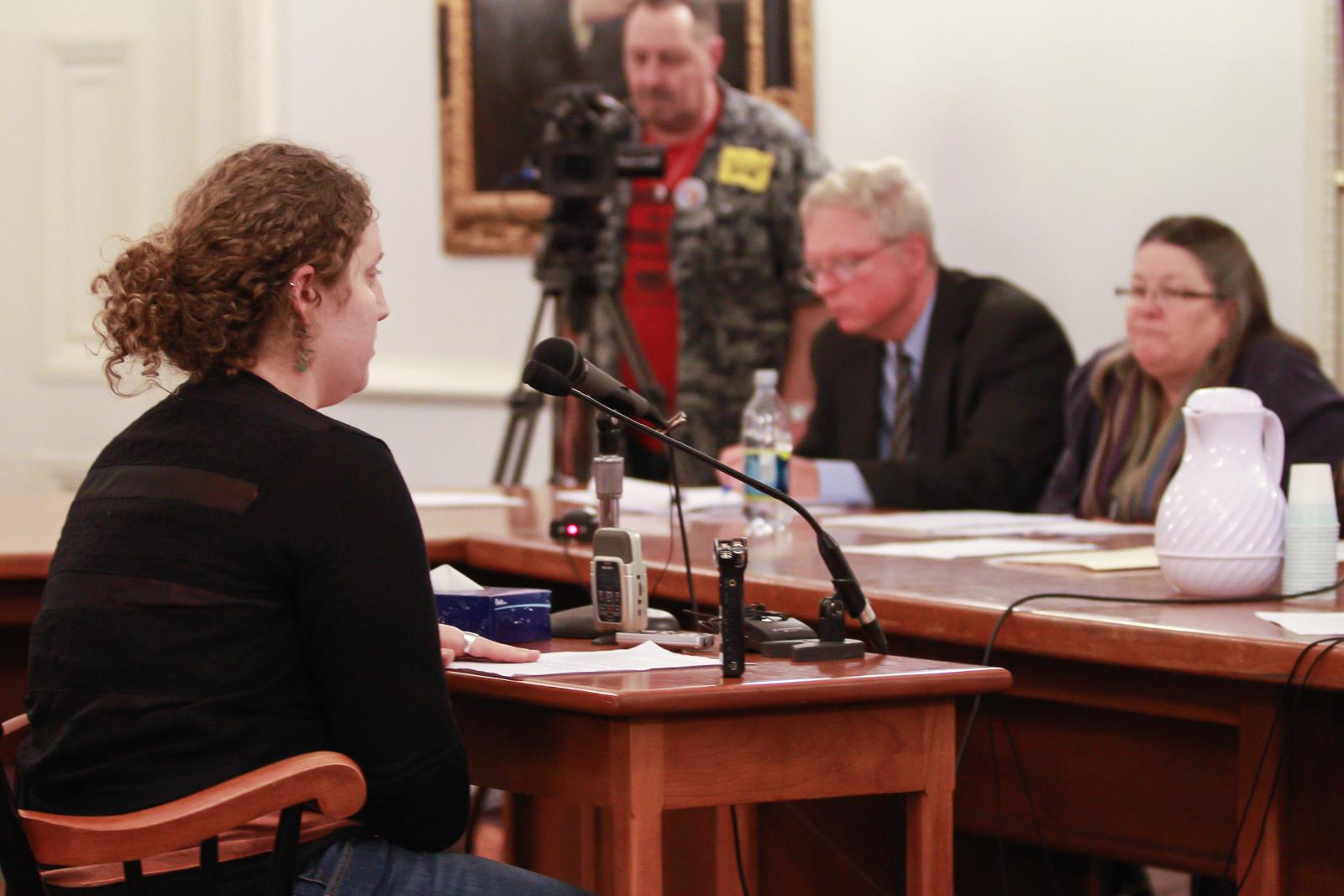
[…] In the most basic sense, this means learning from the successes and failures of our organizing work so that we can be more effective. We must make honest assessments about what we’ve won and why we’ve lost, as Sarah Weintraub has done. We can’t be satisfied with the style of self-aggrandizement or self-justification required of the nonprofit sector by foundation funders. We need a working-class intellectualism that demands that our questions be heard and proposes sound solutions, as Karim Sariahmed and Ellen Schwartz argue. […]